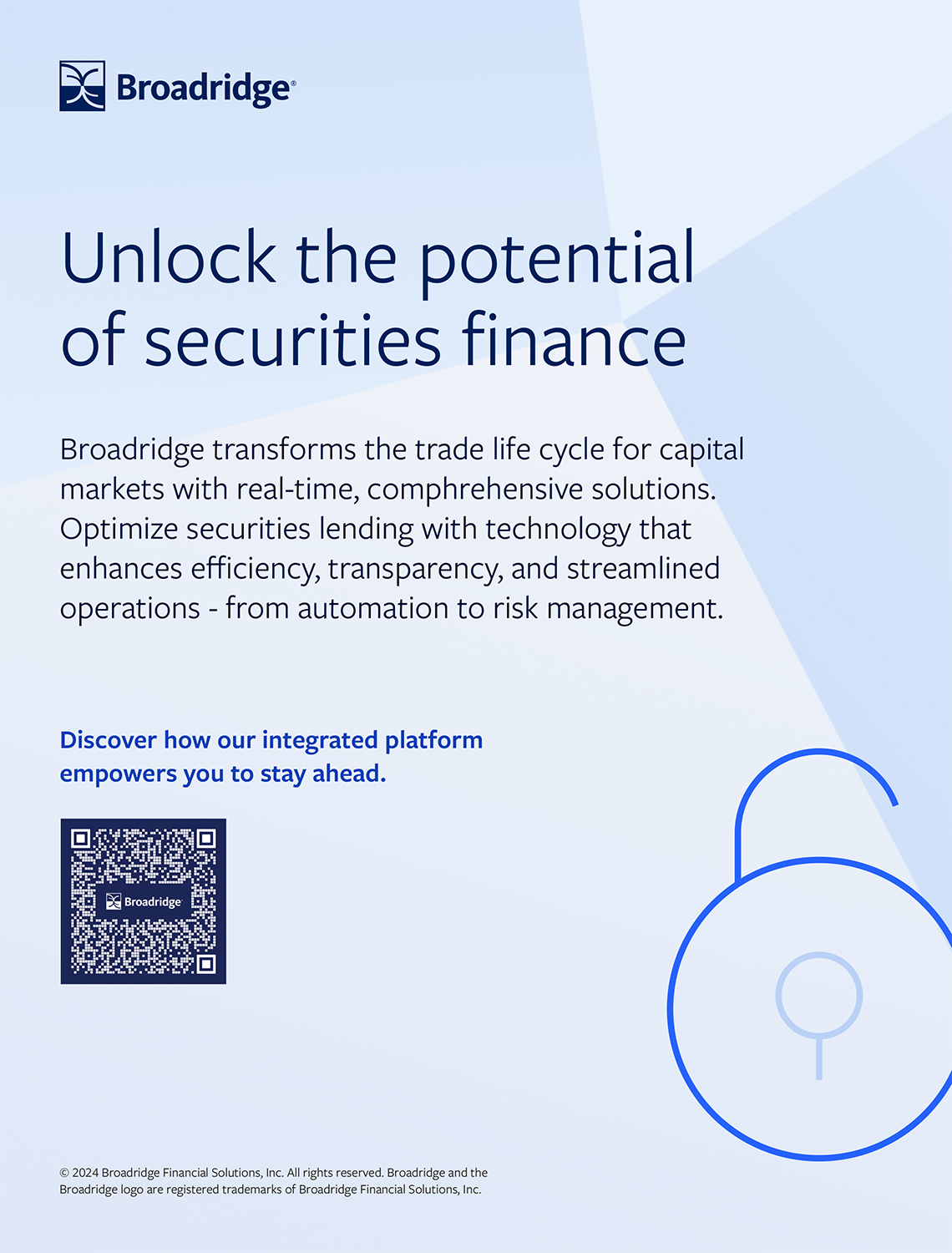DLT is not a solution for every problem, SFT Technology Symposium panellists warn
24 November 2022 UK
 Image: immimagery/stock.adobe.com
Image: immimagery/stock.adobe.com
Distributed ledger technology (DLT) is not a solution for every problem and banks must find valid use cases that work for them, said panellists at this year’s Securities Finance Technology Symposium.
The statements were made during the ‘Digital Assets in Securities Finance’ panel, which explored the current state of digital assets in the market and considered possible futures for the industry.
Ted Allen, director of business development, securities finance and collateral at FIS, was quick to remind the audience that the phrase ‘digital assets’ does not refer solely to cryptocurrencies — in fact, these do not come under the purview of the securities finance industry. Instead, banks are looking to tokenise existing assets and bonds, improve the efficiency of their current business and eventually issue digitally native assets.
This process will not be a quick one, Allen warned, calling the transition an ‘evolution’ and a ‘gradual migration’ from traditional to new rails, with both forms coexisting for many years before a digital approach is fully adopted.
The coexistence of old and new may prove challenging for many market participants. Richard Glen, solutions architect at HQLAX, highlighted how HQLAX has established an initial ‘one-sided’ version of their agency securities lending solution in order to help agent lenders to integrate their loan activities with a digital ledger without impacting their borrowers’ collateral management. This step-by-step approach allows for a steadier integration of workflow, enabling the market to gain confidence in new ways of operating before the full benefits of a delivery versus delivery mechanism are realised, he said.
A further concern around digital assets may be the questions around ownership, another panellist suggested. If something goes wrong, it is often unclear where the rights to it lie. With each digital asset having a different answer to this, market participants want to be clear on where they stand.
David Shone, director of market infrastructure and technology at the International Securities Lending Association, stated that market demand is high, with the association’s digital steering group asking how the industry should start to adopt digital assets into their day-to-day business. He emphasised the need for standardisation, legal frameworks and regulation, along with education. Market participants need to see digital assets as just another asset class, he said, with the misconception that the technology is the product, rather than the asset itself, making many cautious to engage.
Trust comes from a product or system working, Allen stated. Regulation may not necessarily be the only solution to the lack of confidence in digital assets — people simply need to see that they are a viable and effective opportunity. Glen added that greater ecosystem engagement will help with this issue, proving that digital assets and the systems around them work and gaining industry trust.
He went on to emphasise the importance of an easy transition for clients, who want to be able to use their current infrastructure to see and process digital assets alongside their traditional counterparts. The importance of infrastructure being able to support all market blockchains was also cited as a priority.
Considering central bank digital currencies (CBDCs), The panel raised the issue of a lack of consistency across jurisdictions, particularly in consideration to tax laws, which may be an impediment to adoption.
The statements were made during the ‘Digital Assets in Securities Finance’ panel, which explored the current state of digital assets in the market and considered possible futures for the industry.
Ted Allen, director of business development, securities finance and collateral at FIS, was quick to remind the audience that the phrase ‘digital assets’ does not refer solely to cryptocurrencies — in fact, these do not come under the purview of the securities finance industry. Instead, banks are looking to tokenise existing assets and bonds, improve the efficiency of their current business and eventually issue digitally native assets.
This process will not be a quick one, Allen warned, calling the transition an ‘evolution’ and a ‘gradual migration’ from traditional to new rails, with both forms coexisting for many years before a digital approach is fully adopted.
The coexistence of old and new may prove challenging for many market participants. Richard Glen, solutions architect at HQLAX, highlighted how HQLAX has established an initial ‘one-sided’ version of their agency securities lending solution in order to help agent lenders to integrate their loan activities with a digital ledger without impacting their borrowers’ collateral management. This step-by-step approach allows for a steadier integration of workflow, enabling the market to gain confidence in new ways of operating before the full benefits of a delivery versus delivery mechanism are realised, he said.
A further concern around digital assets may be the questions around ownership, another panellist suggested. If something goes wrong, it is often unclear where the rights to it lie. With each digital asset having a different answer to this, market participants want to be clear on where they stand.
David Shone, director of market infrastructure and technology at the International Securities Lending Association, stated that market demand is high, with the association’s digital steering group asking how the industry should start to adopt digital assets into their day-to-day business. He emphasised the need for standardisation, legal frameworks and regulation, along with education. Market participants need to see digital assets as just another asset class, he said, with the misconception that the technology is the product, rather than the asset itself, making many cautious to engage.
Trust comes from a product or system working, Allen stated. Regulation may not necessarily be the only solution to the lack of confidence in digital assets — people simply need to see that they are a viable and effective opportunity. Glen added that greater ecosystem engagement will help with this issue, proving that digital assets and the systems around them work and gaining industry trust.
He went on to emphasise the importance of an easy transition for clients, who want to be able to use their current infrastructure to see and process digital assets alongside their traditional counterparts. The importance of infrastructure being able to support all market blockchains was also cited as a priority.
Considering central bank digital currencies (CBDCs), The panel raised the issue of a lack of consistency across jurisdictions, particularly in consideration to tax laws, which may be an impediment to adoption.
NO FEE, NO RISK
100% ON RETURNS If you invest in only one securities finance news source this year, make sure it is your free subscription to Securities Finance Times
100% ON RETURNS If you invest in only one securities finance news source this year, make sure it is your free subscription to Securities Finance Times



